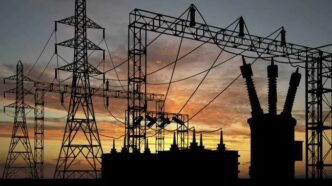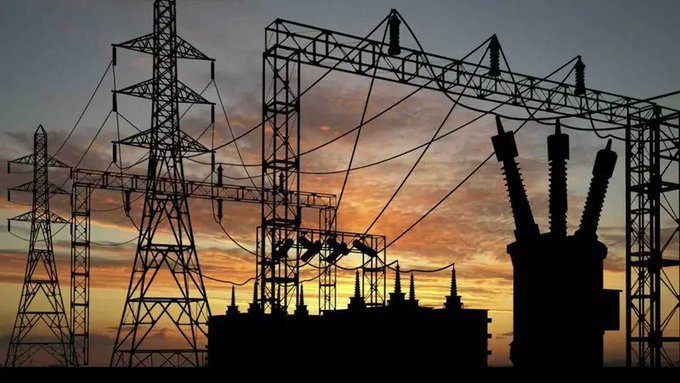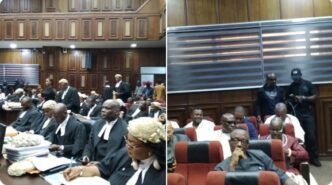Nigeria’s fragile power sector has been plunged into fresh turbulence as electricity generation dropped below 4,000 megawatts on Tuesday, following disruptions linked to the ongoing standoff between the Petroleum and Natural Gas Senior Staff Association of Nigeria (PENGASSAN) and the management of Dangote Refinery.
Data from the Nigerian Independent System Operator (NISO) showed that generation fell to 3,656 megawatts, down from over 4,300MW the previous day. The crisis, now in its second day, has further strained the national grid and compounded the country’s chronic electricity supply challenges.
DisCos Allocation Slashed
According to the latest dispatch data, electricity distribution companies (DisCos) received lower allocations as generation capacity dwindled. Abuja Electricity Distribution Company was assigned 537MW, Ikeja Electric 530MW, and Eko DisCo 451MW. Other utilities across the federation also received reduced supplies, forcing some into rationing and load shedding.
Industry sources noted that the cutback has left millions of households and businesses grappling with extended outages at a time when fuel costs remain high, worsening the impact on small enterprises and manufacturing operations.
Thermal Plants Struggle, Hydro Steps In
A large proportion of Nigeria’s generation plants are gas-fired, making the system particularly vulnerable to disruptions in gas supply. As of Tuesday, only a handful of gas plants remained operational. Delta Power Station contributed 472MW, while Egbin — the country’s largest thermal plant — generated 447MW.
With gas flows disrupted, hydropower plants have been ramped up to stabilize the grid. “We are taking contingency measures to maintain stability, including increasing hydro generation and enforcing load management,” NISO officials said in a brief statement.
However, experts caution that hydro stations cannot fully compensate for the sharp shortfall from thermal plants. Nigeria relies on gas for more than 70 percent of its electricity generation, leaving the sector exposed whenever supply chains are disrupted.
Root of the Crisis — The Dangote/PENGASSAN Dispute
The present crisis stems from a heated industrial dispute between PENGASSAN and Dangote Refinery, Africa’s largest single-train oil refinery and a major player in Nigeria’s gas and petroleum supply chain.
PENGASSAN accused the company of sacking over 800 unionized workers in what it described as “mass victimization.” The union responded by ordering its members to halt gas supplies to the refinery and related operations, a move that has triggered ripple effects across the energy value chain.
“The management of Dangote Refinery has acted in bad faith by illegally terminating the employment of our members. Until this injustice is addressed, we will continue to withdraw our services, including the suspension of gas supply,” a PENGASSAN statement read.
The refinery, on its part, has denied wrongdoing, insisting that the layoffs were part of restructuring efforts aimed at streamlining operations. Dangote Industries has maintained that it remains open to dialogue but will not be “coerced into reversing legitimate management decisions.”
Government Intervention
Alarmed by the potential economic fallout, the Federal Government has stepped in to mediate. The Ministry of Labour and Employment confirmed that it has summoned both parties for an emergency meeting in Abuja.
According to government officials, discussions will focus on finding common ground to restore normalcy in gas supplies, which are vital not only for power generation but also for industrial operations and domestic consumption.
Energy analysts warn that prolonged disruptions could cripple electricity supply nationwide and stall economic activities. “This is a high-stakes dispute that Nigeria can ill afford. The refinery is critical to the energy chain, and any disruption has cascading consequences,” said energy policy analyst, Dr. Bamidele Ogunyemi.
Economic and Social Fallout
The drop in power supply is already reverberating across the economy. Manufacturers, who rely heavily on electricity to run production lines, say the situation threatens output and profitability.
“Most of us are running on diesel generators, but with diesel prices already above ₦1,200 per litre, this is unsustainable. If the situation does not improve, we will have no choice but to scale down operations,” said Segun Ajayi-Kadir, Director General of the Manufacturers Association of Nigeria (MAN).
Small businesses and households are equally hard hit. For many Nigerians, power outages mean extra spending on petrol for small generators or enduring long hours without light. “Yesterday, we had just two hours of supply in my area. It’s terrible, and no one tells us when it will improve,” lamented a resident in Lagos.
Power Sector Fragility Laid Bare
This latest crisis once again highlights the vulnerability of Nigeria’s electricity sector, which has struggled to consistently generate more than 5,000MW for a population of over 200 million people.
Despite billions of dollars invested in privatization and reforms over the past decade, generation, transmission, and distribution challenges persist. The current dip to below 4,000MW underscores how quickly the grid can collapse when gas supply — the lifeline of the sector — is disrupted.
Experts say the situation calls for urgent diversification of energy sources. “Nigeria cannot continue to rely on gas alone. We need serious investment in renewables, coal, and other energy sources to build resilience,” said Prof. Joy Uzo, an energy economist at the University of Lagos.
Calls for Resolution
Stakeholders across the spectrum are urging quick resolution of the dispute. The Nigerian Labour Congress (NLC) has thrown its weight behind PENGASSAN, warning the government not to “ignore the plight of workers.”
On the other hand, business groups are pressing for compromise to prevent further economic losses. “We need both parties to return to the table. The longer this goes on, the greater the damage to industry and livelihoods,” said Chinyere Almona, Director General of the Lagos Chamber of Commerce and Industry (LCCI).
Looking Ahead
As the standoff enters its second day, uncertainty hangs over the country’s electricity supply. If mediation efforts succeed, gas supply may resume within days, allowing generation to bounce back. But if talks collapse, Nigerians may be bracing for a prolonged period of blackouts and economic strain.
In the meantime, NISO says it will continue to implement load balancing and ramp up hydro generation to mitigate the crisis. Yet, for many Nigerians, the reality is stark: without a swift resolution, the lights will remain out in many homes and factories across the country.














